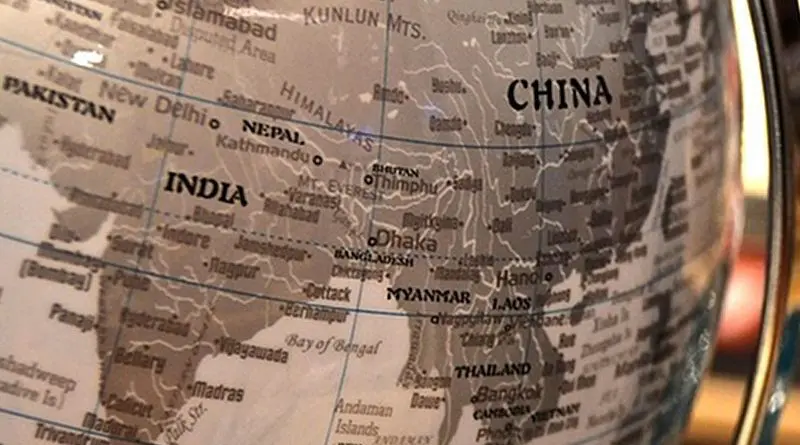Emerging Regional Security Trends: A Surge In Terrorism – OpEd
Recently, the Government of Pakistan shared a dossier containing “details and evidence” of New Delhi’s role in a deadly car bombing in the Pakistani city of Lahore in 2021 which killed innocent civilians, as well as other acts of terrorism.
Hina Rabbani Khar, Pakistan’s Minister of State for Foreign Affairs, stated at a recent press conference that Pakistan had provided evidence of Indian involvement in last year’s terrorist attack in Johar Town, Lahore, and urged the international community to hold India responsible for its crimes. She added that the dossier will also be shared with the secretary-general of the United Nations. “India is portraying itself as a champion of counter-terrorism despite the fact that it has made no contributions in this regard and has paid only lip service…If you compare Pakistan and India, you will notice that Pakistan is always at the forefront of counter-terrorism, ensuring that we are a player in the world to ensure that terrorism does not continue to haunt us”, said the Minister.
Prior to this, Pakistan’s Interior Minister Rana Sanaullah stated in a media briefing that Pakistan has “undeniable” proof of India’s involvement in the bombing in Johar Town.
India’s role as a regional destabilizer is now a security concern for the region. Recent times have witnessed an increase in terrorism in Afghanistan, which has had repercussions in Pakistan. India’s role as a regional destabilizer by supporting non-state actors against sovereign states is a source of concern. The Indian government has been attempting to establish contact with the ISKP and Al-Qaeda against Pakistan since 2014. According to international media, National Security Advisor Ajit Doval met with Al Qaeda and ISKP in Iraq in order to use them against Pakistan. In addition to constant attacks on Pakistani interests, the TTP has unilaterally dismantled the peace agreement. The deplorable ISKP attack on Pakistan’s mission in Kabul, which viciously targeted Charge d’affaires Ubaidur Rehman Nizamani, was foiled by Pakistan’s well-trained SSG commando. The twin terrorist attacks in the Kabul mosque frequented by Hezbi Hekmatyar and on Pakistan’s Charge d’Affaires indicate opportunistic urban warfare by destabilizers seeking to destabilise Afghanistan. The Interim Taliban government is incapable of establishing its authority, protecting its own territory, and preventing spillover effects. Multiple organisations, such as TTP, ISKP, and AQIS, appear to have a growing likelihood of forming an alliance. This could lead to a rise in the number of such groups. Afghanistan’s current state provides India with additional opportunities to intensify its terrorist operations against Pakistan. Recent Indian-funded BLA and BLF attacks in Kech, Panjgur, and Mand demonstrate that India is attempting to incite subnationalist terrorism in Pakistan.
In September 2021, Pakistan’s government provided empirical evidence, a 131-page dossier and a CD containing audio and video recordings, exact GPS coordinates of five Indian-funded and managed ISKP terror training camps suspected of using chemical weapons. Pakistan shared with the world detailed information on the India’s State Sponsored Terrorism. There have been no significant crackdowns on these ISKP training camps funded by India. Afghanistan’s former NDS intelligence chief Rahmatullah Nabil openly admitted in Dushanbe: “We assisted India against Pakistan, but India revoked our visas after the fall of Kabul. The Indian Intelligence Agency, RAW, is training, funding, and arming the TTP and ISKP, while the Afghan Taliban are exhibiting inaction in stopping activities of TTP, ISKP, and AQIS.
All of these recent attacks are plausible indicators of Indian proxy involvement and Taliban negligence in Afghanistan. They raise concerns about a growing alliance between ISKP, TTP, and AQIS, whose cells merging poses a regional threat if not addressed. The Taliban in Afghanistan are not living up to their pledge to keep their country free of terror; on the contrary, extremist attacks have increased dramatically. The Taliban of Afghanistan must intensify their investigations and arrests with a sense of urgency. All terrorists from the TTP and ISKP must be turned over to Pakistan for swift justice. The Taliban of Afghanistan are now responsible.
Noureen Akhtar is a PhD Scholar (SPIR-QAU). Currently she is working in Islamabad Policy Research Institution (IPRI) as Policy Researcher/Consultant. Her work has been published in local and International publications.

